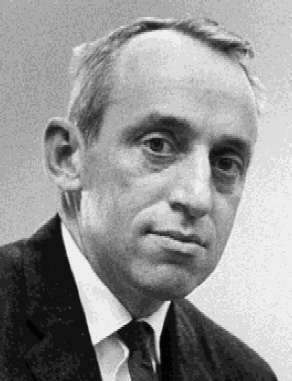
James Tobin was an American economist who served on the Council of Economic Advisers and consulted with the Board of Governors of the Federal Reserve System, and taught at Harvard and Yale Universities. He contributed to the development of key ideas in the Keynesian economics of his generation and advocated government intervention in particular to stabilize output and avoid recessions. His academic work included pioneering contributions to the study of investment, monetary and fiscal policy and financial markets. He also proposed an econometric model for censored dependent variables, the well-known tobit model.
An economist is a professional and practitioner in the social science discipline of economics.

Andrew Michael Spence is a Canadian-American economist and Nobel laureate.
Harry Max Markowitz was an American economist who received the 1989 John von Neumann Theory Prize and the 1990 Nobel Memorial Prize in Economic Sciences.

Lloyd Stowell Shapley was an American mathematician and Nobel Memorial Prize-winning economist. He contributed to the fields of mathematical economics and especially game theory. Shapley is generally considered one of the most important contributors to the development of game theory since the work of von Neumann and Morgenstern. With Alvin E. Roth, Shapley won the 2012 Nobel Memorial Prize in Economic Sciences "for the theory of stable allocations and the practice of market design."

Omicron Delta Epsilon is an international honor society in the field of economics, formed from the merger of Omicron Delta Gamma and Omicron Chi Epsilon, in 1963. Its board of trustees includes well-known economists such as Robert Lucas, Paul Romer, and Robert Solow. ODE is a member of the Association of College Honor Societies; the ACHS indicates that ODE inducts approximately 4,000 collegiate members each year and has more than 100,000 living lifetime members. There are approximately 700 active ODE chapters worldwide. New members consist of undergraduate and graduate students, as well as college and university faculty; the academic achievement required to obtain membership for students can be raised by individual chapters, as well as the ability to run for office or wear honors cords during graduation. It publishes an academic journal entitled The American Economist twice each year.

Paul Michael Romer is an American economist and policy entrepreneur who is a University Professor in Economics at Boston College. Romer is best known as the former Chief Economist of the World Bank and for co-receiving the 2018 Nobel Memorial Prize in Economic Sciences for his work in endogenous growth theory. He also coined the term "mathiness," which he describes as misuse of mathematics in economic research.

The Harvard Political Review is a quarterly, nonpartisan American magazine and website on politics and public policy founded in 1969 at Harvard University in Cambridge, Massachusetts. It covers domestic and international affairs and political events and political discourse at Harvard. It also conducts interviews with political figures and experts. It is a publication of the Harvard Institute of Politics, and is written, edited, and managed entirely by undergraduates. It accepts submissions from all students at Harvard College "regardless of concentration, experience, or political leaning," according to its website.

The Pakistan Institute of Development Economics is a post-graduate research institute and a public policy think tank located in the vicinity of Islamabad, Pakistan.
The MIT Department of Economics is a department of the Massachusetts Institute of Technology in Cambridge, Massachusetts.

Michael Robert Kremer is an American development economist who is University Professor in Economics And Public Policy at the University of Chicago. He is the founding director of the Development Innovation Lab at the Becker Friedman Institute for Economics. Kremer served as the Gates Professor of Developing Societies at Harvard University until 2020. In 2019, he was jointly awarded the Nobel Memorial Prize in Economics, together with Esther Duflo and Abhijit Banerjee, "for their experimental approach to alleviating global poverty."
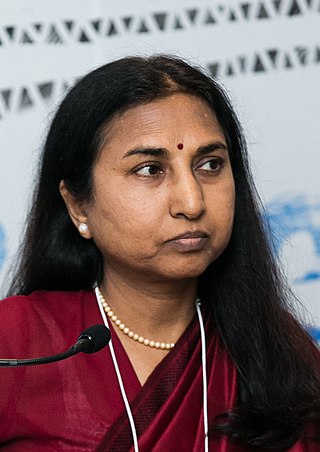
Bina Agarwal is an Indian development economist and Professor of Development Economics and Environment at the Global Development Institute at The University of Manchester. She has written extensively on land, livelihoods and property rights; environment and development; the political economy of gender; poverty and inequality; legal change; and agriculture and technological transformation.
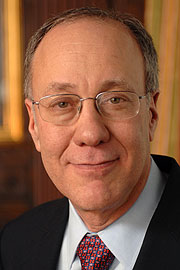
Roger Bruce Myerson is an American economist and professor at the University of Chicago. He holds the title of the David L. Pearson Distinguished Service Professor of Global Conflict Studies at The Pearson Institute for the Study and Resolution of Global Conflicts in the Harris School of Public Policy, the Griffin Department of Economics, and the college. Previously, he held the title The Glen A. Lloyd Distinguished Service Professor of Economics. In 2007, he was the winner of the Sveriges Riksbank Prize in Economic Sciences in Memory of Alfred Nobel with Leonid Hurwicz and Eric Maskin for "having laid the foundations of mechanism design theory." He was elected a Member of the American Philosophical Society in 2019.
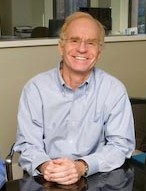
Andrew M. Weiss is Founder and Chief Executive Officer of Weiss Asset Management, a Boston-based investment firm, and Professor Emeritus Boston University.

The Graduate Institute of International and Development Studies, also known as the Geneva Graduate Institute, is a government-accredited postgraduate institution of higher education located in Geneva, Switzerland.

Esther Duflo Banerjee, FBA is a French–American economist who is a professor of Poverty Alleviation and Development Economics at the Massachusetts Institute of Technology (MIT). She is the co-founder and co-director of the Abdul Latif Jameel Poverty Action Lab (J-PAL), which was established in 2003. She shared the 2019 Nobel Memorial Prize in Economic Sciences with Abhijit Banerjee and Michael Kremer, "for their experimental approach to alleviating global poverty".

The Harvard International Relations Council(HIRC) is a non-profit organization that seeks to promote awareness of international relations based out of Harvard University. As several semi-independent but centrally funded programs, the IRC focuses on a number of different outreach areas in an attempt to engage and inform people on international issues and policy-making. Programs within the IRC include:
Masahiko Aoki was a Japanese economist, Tomoye and Henri Takahashi Professor Emeritus of Japanese Studies in the Economics Department, and Senior Fellow of the Stanford Institute for Economic Policy Research and Freeman Spogli Institute for International Studies at Stanford University. Aoki was known for his work in comparative institutional analysis, corporate governance, the theory of the firm, and comparative East Asian development.

The Princeton University Department of Economics is an academic department of Princeton University, an Ivy League institution in Princeton, New Jersey. The department is one of the most premier institutions for the study of economics. It offers undergraduate A.B. degrees as well as graduate Ph.D. degrees. It is considered one of the "big five" schools in the field along with the faculties at the University of Chicago, Harvard University, Stanford University, and MIT. According to the 2018 U.S. News & World Report, the department ranks as joint No. 1 in the field of economics.
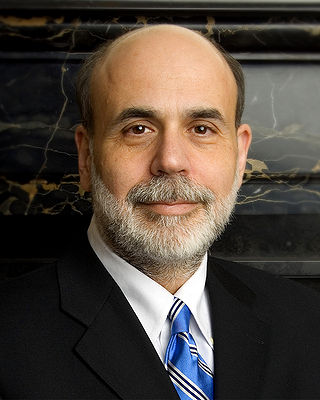
The 2022 Nobel Memorial Prize in Economic Sciences was divided equally between the American economists Ben S. Bernanke, Douglas W. Diamond, and Philip H. Dybvig "for research on banks and financial crises" on 10 October 2022. The award was established in 1968 by an endowment "in perpetuity" from Sweden's central bank, Sveriges Riksbank, to commemorate the bank's 300th anniversary. Laureates in the Memorial Prize in Economics are selected by the Royal Swedish Academy of Sciences. The Nobel Committee announced the reason behind their recognition, stating:
"This year’s laureates in the Economic Sciences, Ben Bernanke, Douglas Diamond and Philip Dybvig, have significantly improved our understanding of the role of banks in the economy, particularly during financial crises. An important finding in their research is why avoiding bank collapses is vital."
















